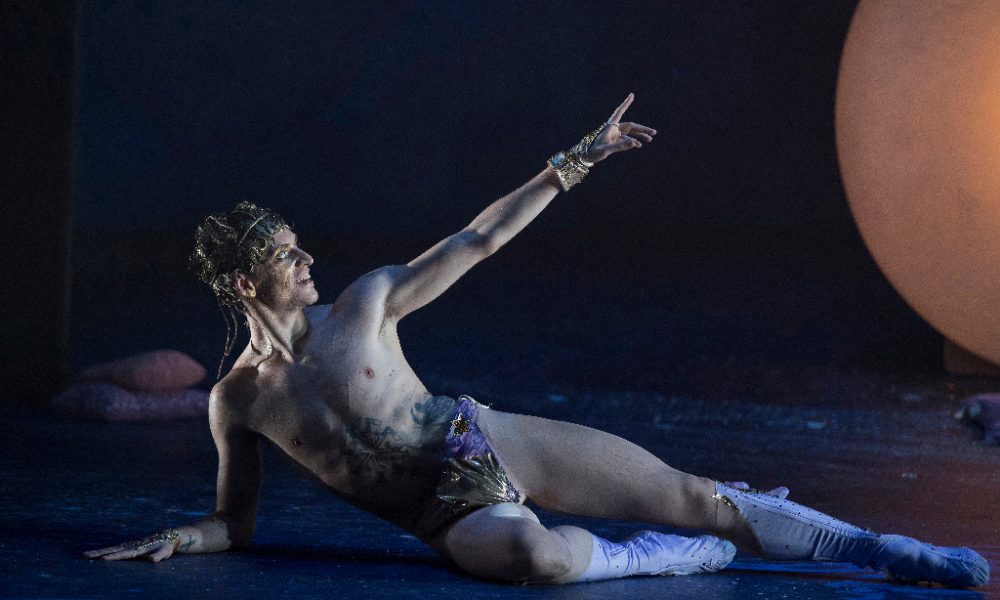Project Polunin at Sadler’s Wells

If there is one thing that has marked Sergei Polunin’s life, it’s flight. At 13 he set forth from his native Ukraine in search of a greater chance at a ballet career. At 21 he threw down his pumps at the doors of London’s Royal Ballet and fled to the Stanislavsky in Moscow. It is this theme of escape – in a piece inspired by the story of Icarus – with which the dancer begins the long-awaited blockbuster Project Polunin at Sadler’s Wells.
Choreographed by Vladimir Vasiliev, the first part of this triple bill tells the tale of Icarus “the night before the flight”, where Aeola (performed by Polunin’s sweetheart, the dazzling Natalia Osipova) begs him to stay with her, forsaking his escape from Crete. Greek mythology continues in the main and final piece of the evening, choreographed by the Ukrainian prodigy himself, in which the pair depict the story of Narcissus, the boy who falls in love with his own reflection, and Echo, driven to despair by Narcissus’s inability to love her.
These tragic heroes of the Greek mythology touch closely on the mystique and reputation that have surrounded Polunin throughout his career: the conflicted idealised self of a prodigious young man thrust into the public eye; the tragic hero who abandons loved ones to follow his dreams; the self-destruction of the individual in the face of adulation.
But Project Polunin, founded in 2015 to bring together dancers, choreographers and artists from other fields, seems to represent a change of direction for the “bad boy of ballet” – a gradual shift from performer to curator, choreographer and all-round dance maker. One wonders whether the guise of the enfant terrible is slowly being discarded. While Icarus dreams of taking flight, perhaps Sergei Polunin is just finding his feet.
In between the two Greek performances sits a composition of contemporary dance theatre by Andrey Kaydanovskiy – the darkly humorous tale of a family dealing with the absurd tragedy of the inevitability of death. What at first seems an odd piece to present in such a programme actually proves intriguing and represents the new areas of work (distant from the ballet clichés of good and evil, male and female, joy and sadness) that Polunin and Osipova are eager to explore further. Although the piece sometimes feels predictable and its narrative frustratingly leads to no satisfying conclusion, the deconstructive explorations of the contemporary human condition provide an interesting contrasts with the romantics of the rest of the evening.
Agnish Ray
Photo: Alastair Muir
Project Polunin is at Sadler’s Wells from 14th until 18th March 2017, for further information or to book visit here.
























Facebook
Twitter
Instagram
YouTube
RSS